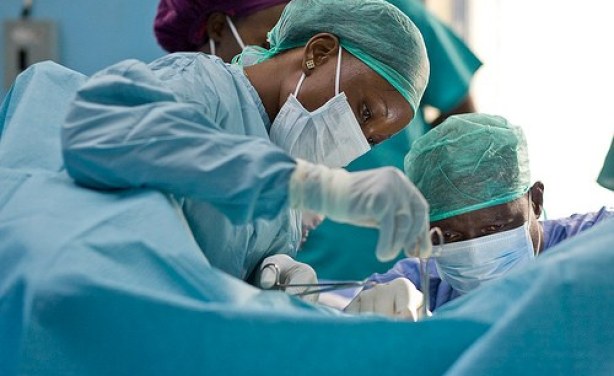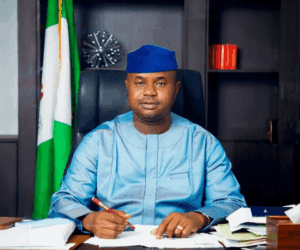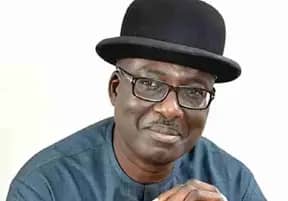From the federal government’s release of new funds for primary health care to the rising toll of Lassa Fever and renewed strike by resident doctors, October was a month of major developments in Nigeria’s health sector.
As part of its monthly review, PREMIUM TIMES brings you a roundup of key stories and developments that shaped health conversations this month.
Nigerian govt releases N32.9 billion to PHCs
In October, the federal government released N32.9 billion under the Basic Health Care Provision Fund (BHCPF) to enhance primary healthcare services nationwide.
The Coordinating Minister of Health and Social Welfare, Muhammad Pate, in a public message titled “The Red Letter: A National Call to Protect Our Health”, said the funds have already been disbursed directly into the commercial bank accounts of PHCs, marking the third round of BHCPF releases in 2025.
One in three Nigerian newborns breastfed within first hour – NDHS
The 2023-2024 Nigeria Demographic and Health Survey (NDHS) has shown that just 35.5 per cent of children born in the two years preceding the survey were put to the breast within one hour of birth.
At the same time, only 12.4 per cent of children aged six to 23 months were fed from at least five of the eight recommended minimum dietary diversity. The findings raise serious concerns about the country’s progress on Infant and Young Child Feeding (IYCF) standards and their implications for child survival and development.
The report also reveals that exclusive breastfeeding among children aged 0-5 months, with a sample size of 2,734, stands at 28.8 per cent.
PREMIUM TIMES, partners host webinar on investing in health financing reform
In October, PREMIUM TIMES, in collaboration with Nigeria Health Watch and The Punch newspaper, hosted a webinar on sustainable health financing.
The webinar, themed “Investing in Health in a Limited Fiscal Space,” discussed the importance of strengthening domestic resource mobilisation and budget efficiency, expanding health insurance coverage and risk-pooling mechanisms, and promoting the uptake of Health Technology Assessment (HTA).
WHO reports major decline in polio cases across Africa
The World Health Organisation (WHO) has reported a decline in the number of African countries with active type 2 poliovirus outbreaks, dropping from 24 to 14 between 2024 and 2025.
The WHO Regional Director for Africa, Mohamed Janabi, in a statement to mark the 2025 World Polio Day, said the total virus detections also dropped by 54 per cent within the same period.
World Polio Day, marked on 24 October annually, provides an opportunity to highlight global efforts toward a polio-free world and honour the tireless contributions of those on the frontlines in the fight to eradicate polio from every corner of the globe.
Lassa Fever death toll rises
In October, the Nigeria Centre for Disease Control and Prevention (NCDC) reported a rise in confirmed Lassa fever cases in its situation report for Epidemiological Week 40.
According to the report, 13 new confirmed cases were recorded during the week, a significant increase from four in the previous week.
All new infections were reported from Ondo State, one of the country’s persistent Lassa fever hotspots.
Resident doctors declare indefinite strike
Towards the end of October, the Nigerian Association of Resident Doctors (NARD) declared an indefinite nationwide strike, following what it described as the federal government’s persistent failure to resolve long-standing issues.
The strike, which took effect from 1 November, marks an escalation of the dispute between resident doctors and the government after months of failed negotiations.
NARD had earlier embarked on a five-day warning strike on 12 September, which it suspended two days later, giving the government a two-week ultimatum that was later extended by 30 days.
Global health leaders seek stronger health agencies
Global health leaders have urged countries to strengthen their national public health agencies to enhance preparedness and resilience against future pandemics.
They made the call in Berlin at the 2025 World Summit during a high-level session titled “Strengthening National Health Agencies for Future Pandemics.”
20 per cent of adolescents experience mental health disorders — WHO
In October, the World Health Organisation (WHO) revealed that between 10 and 20 per cent of adolescents globally experience mental health disorders such as depression and psychosis, often beginning between the ages of 11 and 18.
WHO Country Representative in Nigeria, Pavel Ursu, while speaking at the 2025 International Adolescent Health Week, said mental health challenges among young people remain underdiagnosed and untreated, leading to long-term health and social consequences.
Mr Ursu, who was represented by Mary Brantuo, lamented low mental health literacy, stigma, and inadequate access to services, noting that only 20–30 per cent of Nigerian adolescents engage in regular physical activity.
Nigerian lawmakers probe $4.6bn health grants
The House of Representatives has resolved to investigate the utilisation of over $4.6 billion in health grants and assistance received by Nigeria from the Global Fund and the United States Agency for International Development (USAID) between 2021 and 2025.
The resolution followed the adoption of a motion of urgent national importance moved by Philip Agbese (APC, Benue), the deputy spokesperson of the House, during plenary.
The motion came as a result of concerns over Nigeria’s persistent poor health outcomes despite the huge financial inflows
The country’s health system has long faced scrutiny over the management of donor funds.
Over 3 billion people worldwide affected by Neurological disorders – WHO
The World Health Organisation (WHO) warned that neurological conditions now affect more than 40 per cent of the global population, over three billion people, making them one of the world’s most pressing health challenges.
The report, titled “Global Status Report on Neurology,” also revealed that less than one in three countries has national policies to address the growing burden of neurological disorders.
According to the WHO, neurological disorders are responsible for over 11 million deaths each year and remain a major cause of disability and suffering worldwide.










